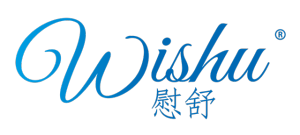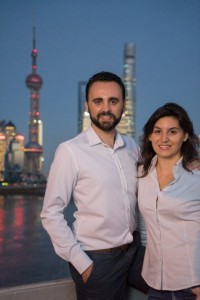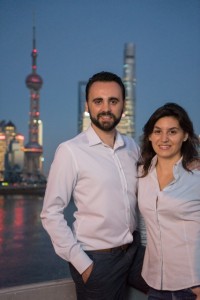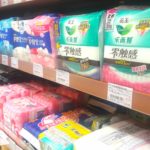The Feminine Hygiene Industry in China: Wishu Tampon’s Story
To know more about China’s market, contact us at dx@daxueconsulting.com
An Emerging Industry in China? Wishu Tampon’s Story
The Feminine Hygiene Industry in China
Till this day China’s market has been one of the most promising markets in the world with 1.357 billion of consumers. Focus-Economics (2016) states the Chinese economy experienced an astonishing growth in the last few decades that catapulted the country to become the world’s second-largest economy; China exited the financial crisis with GDP growing above 9%, low inflation, and a sound fiscal position. According to a market research, done by Daxue, the retail value of feminine hygiene industry in China is predicted to increase by 47% by 2018 from CNY 57.7 in 2013 to CNY 84.95 billion.
As we are talking about the feminine hygiene market, there are products such as menstrual pads, sanitary napkins, menstrual cup, panty-liner, and tampons. However, tampons are relatively new to China due to cultural restraints, affordability, and usage concerns. Tampons have traditionally been rare in China due to a lack of interest from Chinese consumers. There are no other options for Chinese consumers who are interested in trying a different product rather than the occasional sanitary pads, the only choice available to women from the non-applicator tampon is OB tampons, which appeared on shelves in China in 1993 and they are generally stock in higher-end shops, or few overpriced applicator tampons such as Natracare, Pleasant and Tempo. In addition, as this product is still very new to the Chinese consumers, there is no proper education here in China to educate the younger generation on how to use these products. There are companies that have tried to sell this niche product in China in order to gain a market share but did not commit themselves in the market as the investments were more than the profit. P&G tried to penetrate the Chinese Market in the 90’s, the Chinese market has then been temporarily left in 2000.
; they have given up on promoting tampons across China in 2000 as the organization has concluded that it was not worth the investment. Then came the arrival of smaller firms such as Wishu, Cotton Tampon and BeGirl that established themselves to supply the Chinese Market.
Wishu’s Story
 An inspiring Entrepreneurship story of Jeremy Rigaud and Virginie Pre that beat the odds in China. It all started when the lovely couple felt that their comfortable bank jobs in France did not satisfy their quench for challenge and adventure. They then made the decision to quit their job to enter the fast-paced and unpredictable market of China. With the pleasure of interviewing the lovely couple, they began telling us the story of how it all began.
An inspiring Entrepreneurship story of Jeremy Rigaud and Virginie Pre that beat the odds in China. It all started when the lovely couple felt that their comfortable bank jobs in France did not satisfy their quench for challenge and adventure. They then made the decision to quit their job to enter the fast-paced and unpredictable market of China. With the pleasure of interviewing the lovely couple, they began telling us the story of how it all began.
In the beginning, the couple believed that understanding the environment, adapting themselves and using their network, was their number one priority. Then, brainstorming business ideas came next; the idea of selling tampons was born. We questioned them “but why tampon?” And their answer was simply “Why not? It’s a crazy idea and success comes from the most unexpected ideas”. Wishu was then born in 2012 as Jeremy and Virginie discovered that tampons were a niche product in that time in China; as tampons were not available to any Expats or Chinese consumers in the country. As Jeremy states it, “the only way to get tampons was to get it from friends traveling to China from abroad”.
Wishu began selling their products on online market platforms such as Taobao, Suning, Jingdong, and Yihaodian. With a large number of Internet users in China and the accessibility of information Internet provides, is it not a surprise that the Chinese consumers have found Wishu online. Also, “By having an online market platform, we can reduce costs while maintaining our effectiveness and efficiency,” says Jeremy. According to him, the biggest mistake that most entrepreneurs make when doing business in China is using the same methods and strategy they have used in different countries, instead of adapting themselves and understanding the Chinese Market. Now, Wishu has begun introducing their products in large supermarkets and soon in small convenient shops. In the interview, we have asked if they would be afraid of larger firms that choose to enter the market such as P&G. “With companies like P&G entering the market, it would be very beneficial for us as they have the capital to invest more in advertising and educating the consumers. We are not afraid of them taking the market share as we are a growing company that has reached out the goal of offering different products to Chinese people.” Said the CEO, Jeremy.
“In the beginning, we decided to target the Expat community well-off in China and slowly educate the Chinese consumers but we discovered that the expat community is in general only here in China for a short period of time with 3 years being the longest and have their own supply of tampons brought from their respective countries. However, we discovered that with online information easily accessed by the Chinese consumers, they have somehow educated themselves. Thus, we found out that Chinese consumers found us online and started to try our products, highlighting the importance of the Internet in mainland China.” says Jeremy.
Wishu prioritizes their brand image with quality, packaging, price, and positioning. They are committed to providing the best for their customers with affordable prices. “ We want to be different from the rest of our competitors, we put a great deal of effort in designing our products, our packaging, and finding a quality supplier to manufacture our products,” says Managing Partner, Virginie.
Creatively, Wishu introduced a brand ambassador called Miss W, an animated character that portrays an exciting, confident and adventurous lifestyle of the modern aged women with the aim to attract women from the age of 18-35 years old that can relate themselves to this character. Also, the CEO of Wishu mention since that they have gained their customers through the internet, he believes the best way to promote the brand would be through the internet, magazines, events and free samples than physically advertising themselves on billboards and TV advertisements.
To end our interview, we have asked the lovely couple to give us any advice on how to be successful and overcome the challenges in the Chinese market. Virginie states, “In a market like China, you will need to adapt as quickly as how the market trend moves. You always need to be prepared for the inevitable and commit yourself to your mission and goals with blood and sweat. Be aware of what is happening in the country and take the initiative to continuously learn new things”.

Sources:
- Wishu’s website
- The cosmetic Industry in China
Follow us on our Social media, see our latest video about the Chinese demographics:
#ChineseConsumers show different shopping patterns depending on wealth, age, and location. A must-watch video https://t.co/kF9zD8n94z #China
— Daxue Consulting (@DaxueConsulting) November 16, 2015















